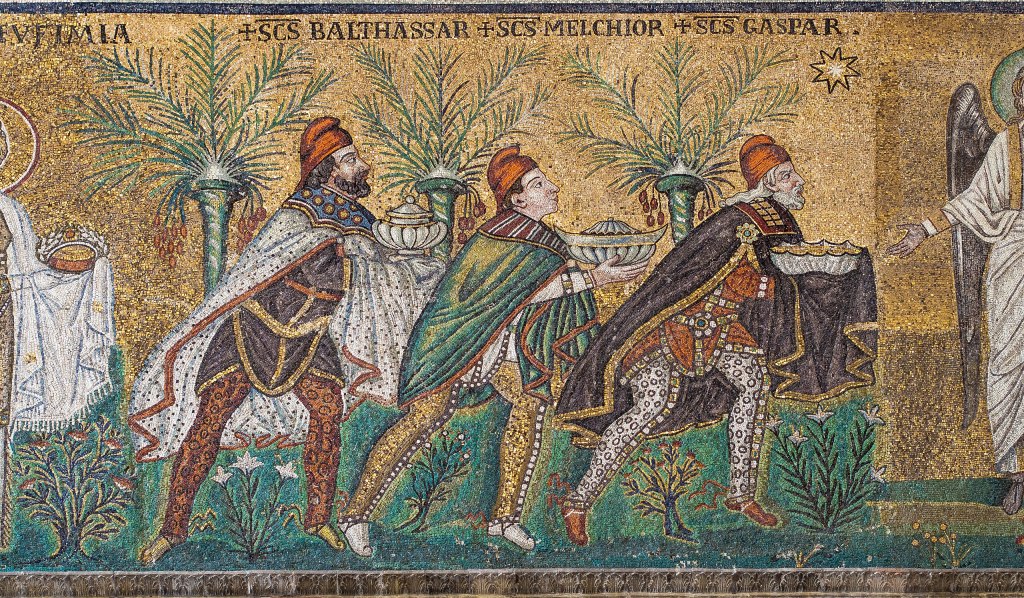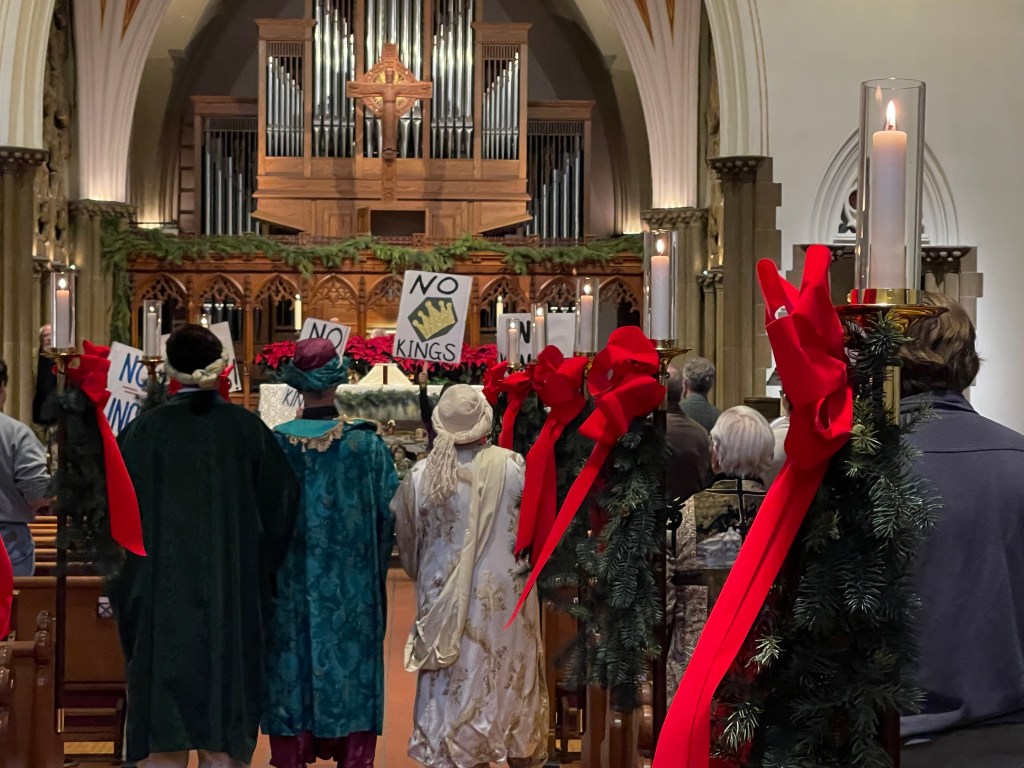March 1, 2026
We are gathered today on this Second Sunday in Lent, full of fear, anxiety, and anger. On top of all else that has happened over the last year as we have watched the institutions and values we held dear collapse; the unbearable burdens of it all weighing us down, and now this, war on Iran, a school with 85 schoolchildren bombed; the leader of their nation killed, chaos and further violence and pain await.
We gather today, distracted and mortified, seeking solace and comfort. Many of us may also have been hoping to use this season of Lent to deepen our faith, to grow in discipleship, to draw nearer to Christ as he and we all draw near to the cross. And yet it may be that for you, as well as for me, the words of today’s gospel offer no solace or comfort, but evoke trauma of past religious experiences—born again, or the weaponization of John 3:16. Words meant to offer life instead have offered condemnation in the culture of American Evangelical Christianity.
Although in this, the first year of our three year lectionary cycle, we spend most Sundays in the gospel of Matthew, for the next four Sundays, and during Eastertide, we will be reading from the Gospel of John. For today and the next three Sundays we will be spending time with three fascinating stories from that gospel, each of them detailing encounters with Jesus. This week, there’s Nicodemus; next it’s the Samaritan woman at the well; then there’s the man who was born blind; and finally, the story of the raising of Lazarus.
Each story is also a story of transformation; most obviously in the case of Lazarus, whom Jesus raised from the dead. In today’s story, there seems to be no transformation but Nicodemus will make two other appearances in the gospel, most notably at Jesus’ death when he assists Joseph of Arimathea in burying Jesus’ body where he is identified as a follower of Jesus. But all that comes later.
For now, let’s focus on the story in front of us. Nicodemus is identified as a Pharisee, a leader of the Jews. So we’re meant to imagine a prominent figure in the community. We’re told he comes to Jesus by night, an image that evokes both darkness—the binary of light and darkness is prominent throughout John’s gospel, and secrecy. We might conclude that Nicodemus doesn’t want others to know that he sought out Jesus.
In any case, Nicodemus says something a bit puzzling to Jesus: “Rabbi, we know that you are a teacher who has come from God; for no one can do these signs that you do apart from the presence of God.” What’s interesting is that Nicodemus approaches him with a term of respect. Not yet an official role in Judaism, that would come a century or two later, but he calls Jesus Rabbi—teacher and goes on to say that Jesus performs signs—a reference in the gospel of John to Jesus’ miracles, which ability is a sign of God’s presence in and with Jesus.
On the surface, it seems fairly straightforward, an acknowledgement of Jesus’ power, but it is also probing: it’s not a direct challenge to Jesus’ authority as we will see later in the gospel, but it seems to imply that Nicodemus isn’t quite sure what to make of Jesus.
Not surprisingly, Jesus isn’t about to give him any help in his quest for information. As happens so often in the gospel, Jesus’ reply to him seems to be something of a non sequitur, perhaps even nonsensical: “I tell you, no one can see the kingdom of God unless they are born from above.” Nicodemus after all has made no mention of the kingdom of God.
And then comes another puzzle. Our translation reads “unless they are born from above.” The traditional translation is: “born again.” Same word, two completely different possible translations. Instead of asking Jesus to clarify what he meant, Nicodemus assumes Jesus means born again and asks how it is possible to enter one’s mother’s womb again.
I see this as a pivotal moment in their encounter and it’s one that many of us have experienced. When we meet someone or something new, we want to fit into our categories of understanding, to make it make sense on our terms. Nicodemus seems to assume Jesus means one thing, even if it’s nonsensical or absurd, while Jesus is using words that are opening up whole new universes of possible meaning. That becomes clear as Jesus continues, speaking of the spirit blowing where it wills.
In addition to the confusing language that we have here, it’s not clear when Nicodemus leaves the scene. Are the last verses addressed to him, to other bystanders? Or given that Greek texts of the day lacked most punctuation not to mention spaces between words, it’s not even clear whether Jesus speaks the last few verses, or whether it’s the gospel writer addressing us as the text’s readers.
In any case, I should point out that however John 3:16 has been used or interpreted in the past, it’s rarely coupled with the following verse: “Indeed, God did not send the Son into the world to condemn the world, but in order that the world might be saved through him.” In other words, it is not a statement of exclusivity or exclusion, but rather one of openness and invitation. Christ came into the world that the world—everyone, in fact, everything, the cosmos, might be saved through him.
As I mentioned, Nicodemus will appear again in the gospel, first in chapter 7, where Jesus is again in Jerusalem and is caught up in a dispute over the nature and origin of his authority. While Nicodemus does not defend him in front of the Pharisees, he does point out that Jesus deserves a fair hearing. This may suggest that the earlier encounter with Jesus opened Nicodemus to the possibility that Jesus’ message was life-giving and transformative.
We see that transformation has taken place in Nicodemus’ final appearance in the gospel where he assists Joseph of Arimathea with Jesus’ burial and provides an extravagant amount of embalming spices. Now, we can conclude that Nicodemus is a disciple of Jesus though a secret one, like Joseph.
Over the past few weeks and months, I have had a number of conversations with people who are relatively new to the church; some are coming back to church after years or decades away, some are experiencing Christian community for the first time. Their journeys are unique, as are all of ours. Sometimes there’s a precipitating event; sometimes, a growing sense that there is something more to life than what they have been experiencing.
I think of Nicodemus, who was first drawn to Jesus because of the signs—miracles he performed but turned away when Jesus didn’t meet his expectations or provide easy answers. But over time, he kept wondering. Maybe he thought about what Jesus said, ruminated over it, tried to figure it out, and kept coming back to it. Maybe Jesus’ words began to make sense, or opened up to him new possibilities of life and faith. In the end, we see him ministering to Jesus at his death, performing intimate acts of devotion and care.
The chaos, violence, and disruption in the world that surrounds us can overwhelm us, immobilize us. It can make it difficult to find space or time to focus on what really matters, to explore our relationship with Jesus. It may make it difficult to process our feelings, to explore the questions that concern us. A chance encounter, words of life, the spirit blowing where it will, may plant seeds that take time to germinate in us. To nurture them, to allow them to grow and blossom may lead to new life in us. I hope you take time this season of Lent, to notice those seeds in yourself, to nurture and sustain them, that your life in Christ may grow to its full stature.


